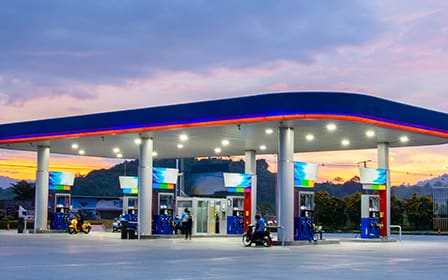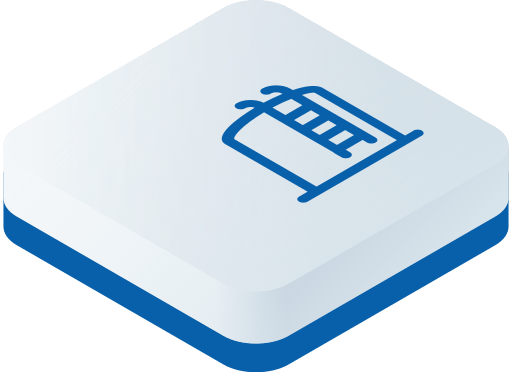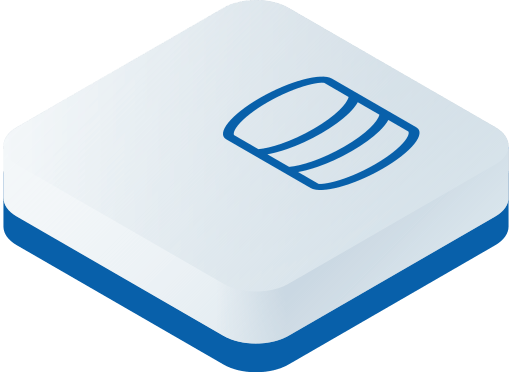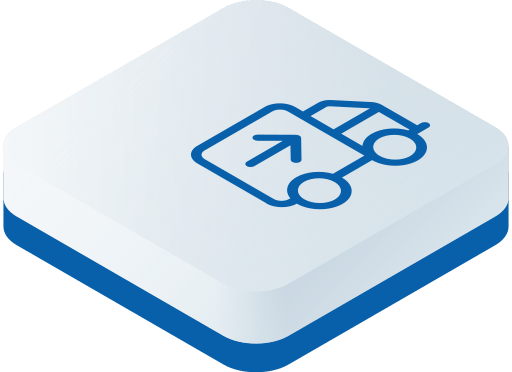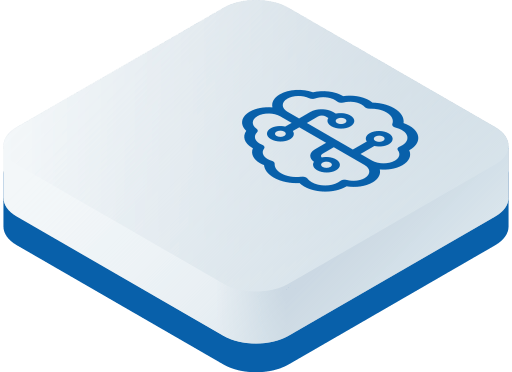Shaping the Future of the Supply Chain
Let's talkSupply Chain United
Learn moreWE LOOK FACTS IN THE EYE
Digitalization is the future
As a player in the supply chain for energy and natural resources, you face major challenges: from labor shortages, volatile demand and consumption to increasing pressure when it comes to margins.
Co-creation
Agile, competent and specialist networks are the building blocks from which innovation is born. This is why we take a controlling stake in developing a global network of experts who are prepared to work with us to redefine our industry.
Cloudification
Complex, high-priced and tailored monolithic solutions are often too expensive for small and medium-sized companies. Processes need to be streamlined and standard solutions implemented that enable such businesses to remain competitive while keeping costs manageable. The idea is to achieve this through automatic upgrades and innovative product offers in accordance with SaaS.
Consulting
The use of digital technologies is now at a turning point, with the complexity of digitalization solutions having unlocked a new dimension: AI, BI, machine learning, data lakes and cloud services are all technologies that market players need to understand and engage with.
WHY WORK WITH US
We are the pioneers of the digitalized supply chain
We also provide UnitedDAT, an industry-wide data management service that our customers use for preventive maintenance, data-driven automated processes and sustainability reporting purposes.
In addition, we help customers deploy standardized data as part of the intelligent automation of business processes and machine learning. This deployment takes place through UnitedBPA, our portfolio of innovative automation services.
Our solutions are customized to our clients’ specific requirements and help them to optimize their business processes while increasing their profitability.
of experience
employees
customers worldwide
languages covered
global partners
Perspectives taken from experience
We have a mission
Harnessing the full potential of digitalization for our customers.
- Appification: developing cost-effective IT services that are accessible to all market participants.
- Integration of existing on-premises solutions into the cloud for enhanced scalability, flexibility and cost savings. The result: a modern, agile and future-proof IT landscape.
- Evaluation and development of new operational areas.
We want to make it clear that workflow processes in companies must change in the face of digitalization.
Our aim is to work with our customers as change management experts as part of a process of wider societal change in which we actively participate. This calls for us to stay informed about:
- Technological advancements and the possibilities on offer
- The ever-changing state of the markets and the new challenges this brings
As digital engineers we help our partners to harness the full potential of technology and as such, strive to seamlessly digitize the complete supply chain of energy and natural resources.
Since we provide a unique combination of modular software plus standardized services, we can solve even the most complex challenges of our customers.
We are the smoothing factor in a big machine. This gives us a great responsibility, not only to investors, partners, and customers, but also to society. We enable companies to attune to the new world of digital thinking by using the entire spectrum of technology: we create cloud solutions to make decentralized work possible and link them to existing on-premise solutions. Currently, we are working on a new sustainable, global industry platform for the entire sector, based on partnerships in which “knowledge” is the primary resource: the Supply Chain United.
We pursue co-creation as a path that will safeguard the future of the industry.
A future that…
- Facilitates cooperation across network-like structures with a consistent flow of knowledge
- Calls for trust and paves the way for customer and workforce retention
- Allows employees and partners to become co-creators
- Enables professional advice to be provided based on expertise
We are on hand to advise you
With four decades of experience in the downstream industry, we help our customers make the right decisions and investments so they can take their business to the next level. Our record of success speaks for itself: countless projects implemented and partnerships established worldwide, long-term business relationships with blue-chip companies, and a comprehensive understanding of brand standards and practices.
Our focus is on future-oriented topics such as digitalization and automation. We are also a developer of official SAP downstream solutions, giving us in-depth expertise in the field of SAP consulting.
IMMERSE YOURSELF IN THE WORLD OF OUR PRODUCTS
OpenTAS
OpenTAS is the digital heart of any modern terminal. It gives all types of storage facilities a comprehensive overview of their inventories and movements. All measurement data, bookings and stocks are available from a centralized location in the system. Based on this data, your tank terminal staff can take their operational excellence …
UnitedDAT
UnitedDAT not only handles the entire data exchange for companies and allows for integration between different IT systems, but it can be used for intelligent tasks such as end-to-end process reporting, visualization and advanced analytics by using state of the art technologies such as machine learning and AI.
SAP S/4HANA SDM
SAP HANA S/4 SDM is a comprehensive solution for companies in secondary distribution. Developed and maintained exclusively by Implico – the only software factory for SAP in secondary distribution and fuels retailing – SAP HANA S/4 SDM provides a broad range of functionalities for the …
UnitedBPA
Through UnitedBPA, Implico provides a service portfolio tailored to the needs of the energy industry: from advice on digital transformation to realizing a company’s potential for automation.

